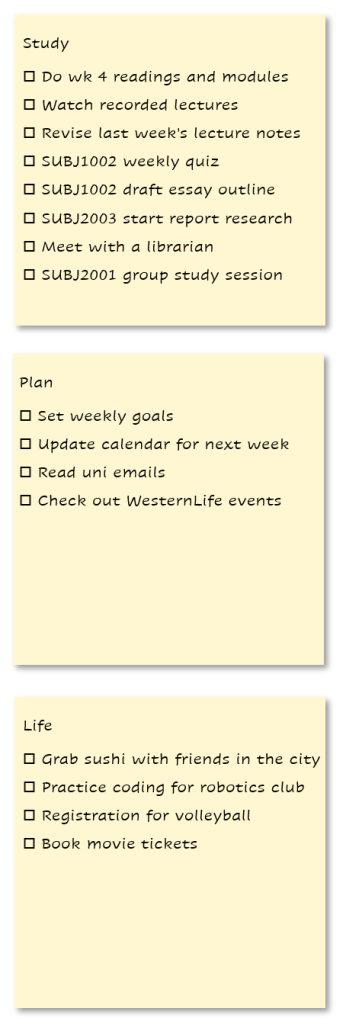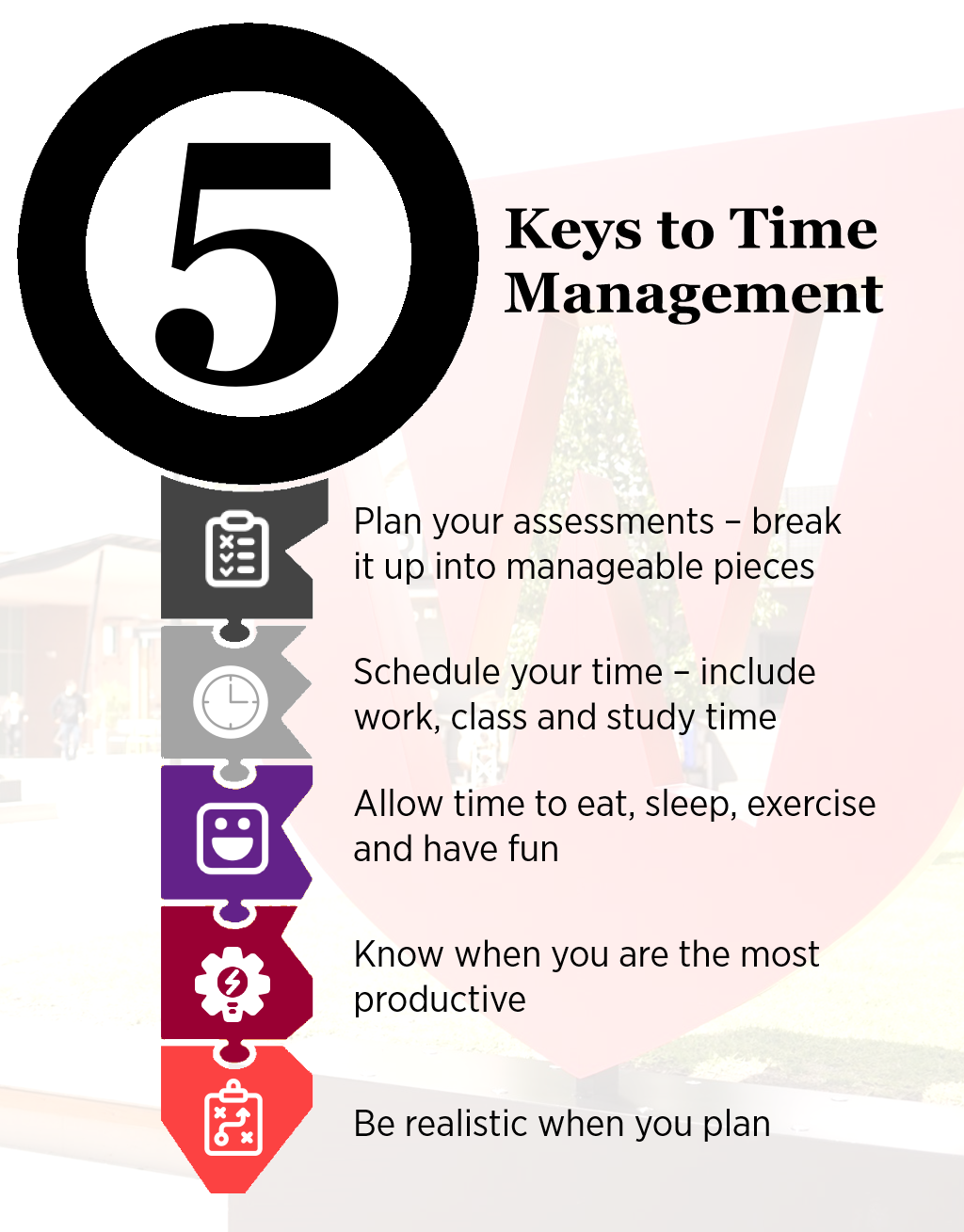2 Time Management

At university, as in other areas of life, it is essential that you manage your time well. By arranging your different commitments strategically, you can ensure that you have enough time to study and to spend on other aspects of your life. This can be difficult with work and family commitments and many people feel they are not good at managing their time, but it is a skill that needs to be developed, not something that comes naturally.
Setting realistic goals when arranging your study time into your life will help you to achieve balance.
Arranging your study schedule
It is important to keep in mind that most of your study time takes place outside of your classes or learning activities, so you will need to allow for this when planning your time. The first step however is to establish how long the semester is and when your assignments for each subject are due. This will form the basis of your planning.
From here, you can plan from a monthly perspective, down to weeks and then to days. We suggest taking a backwards approach and plan your time back from the due dates of each assignment. Include study time and all other elements of your normal routine so that your plan is realistic and takes advantage of when you are most productive (e.g. morning or night).
One way to backwards plan is to:
- put your assignment due dates, learning activities, work and regular family responsibilities into your calendar
- block out time to work on assessments before they are due
- block out time for studying e.g. reading, writing, preparing and revising.
Now that you have your calendar populated the next step is to follow your plan.
Keeping a weekly to-do list
To-do lists are a simple way to keep you on track by reminding you what you need to get done. Plus, it is motivating to check off tasks! You can use a list app like Notion or Microsoft Planner, or even sticky notes on your desktop. The important thing is that it is easily accessible and that you keep it up to date.
Here is a to-do list separated into ‘buckets’ for studying, planning, and social life tasks.

Dealing with procrastination
Often when a task is overwhelming or complex, you can end up avoiding it and procrastinating. An effective technique for dealing with procrastination is the Pomodoro Technique where you divide your work into manageable smaller chunks. With the Pomodoro technique, you set a timer for 25 minutes and you focus intently on a single task for 25 minutes. You then take a short break and continue in 25 minute increments.
Applying this technique is a good way to tackle a project that you are avoiding. Often, just starting an assignment or project is the most difficult hurdle.
Tools for time management
- Download the Western Sydney University Weekly and Semester Planners from the Counselling Service and use these to create a plan for your semester.
- Use the Western Sydney University Library Assignment Planner[1] to plan your assignments, understand the steps involved, and how much time you should dedicate to each task.

- Currently inactive and waiting for the resource to be restored. ↵

